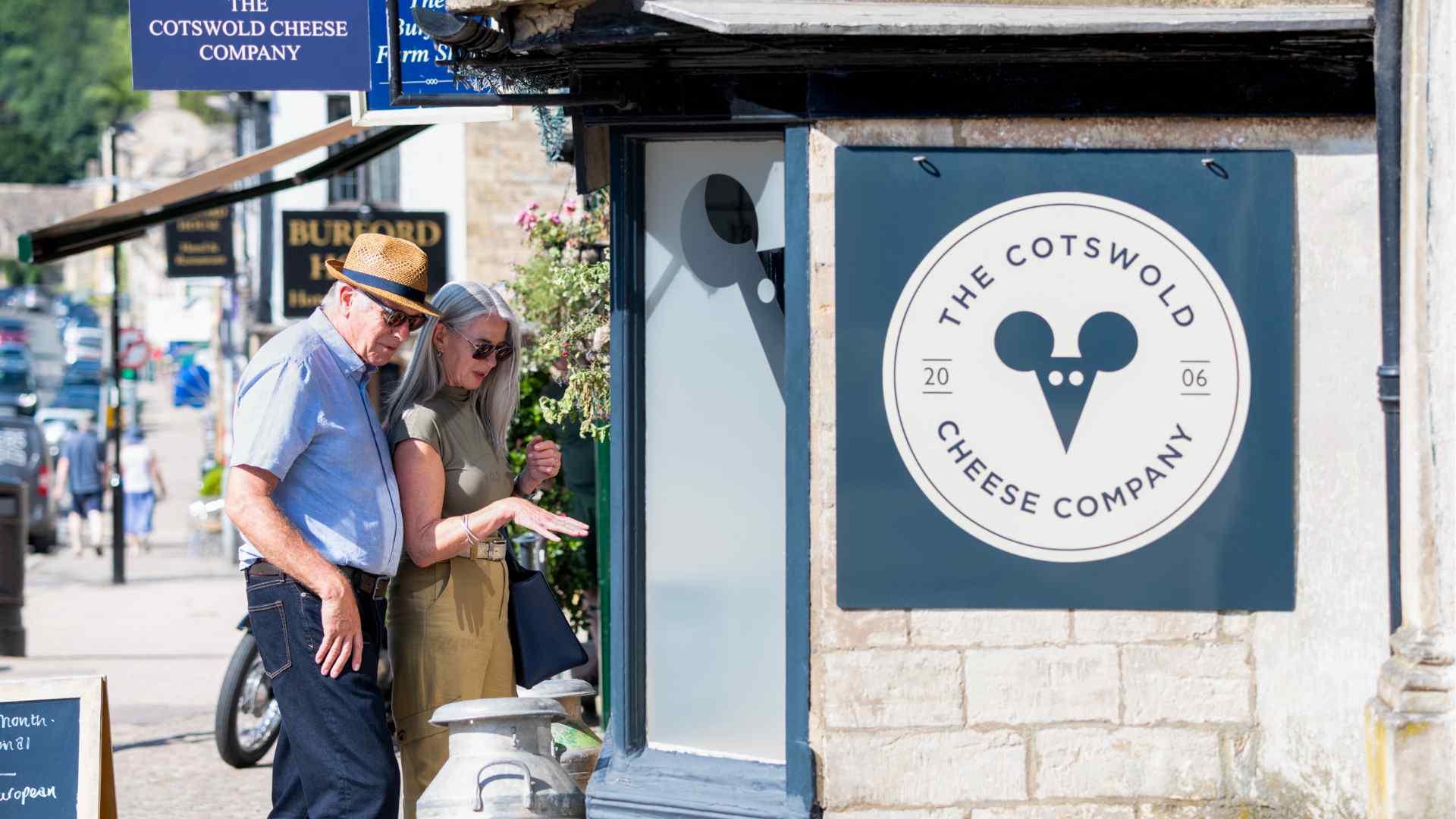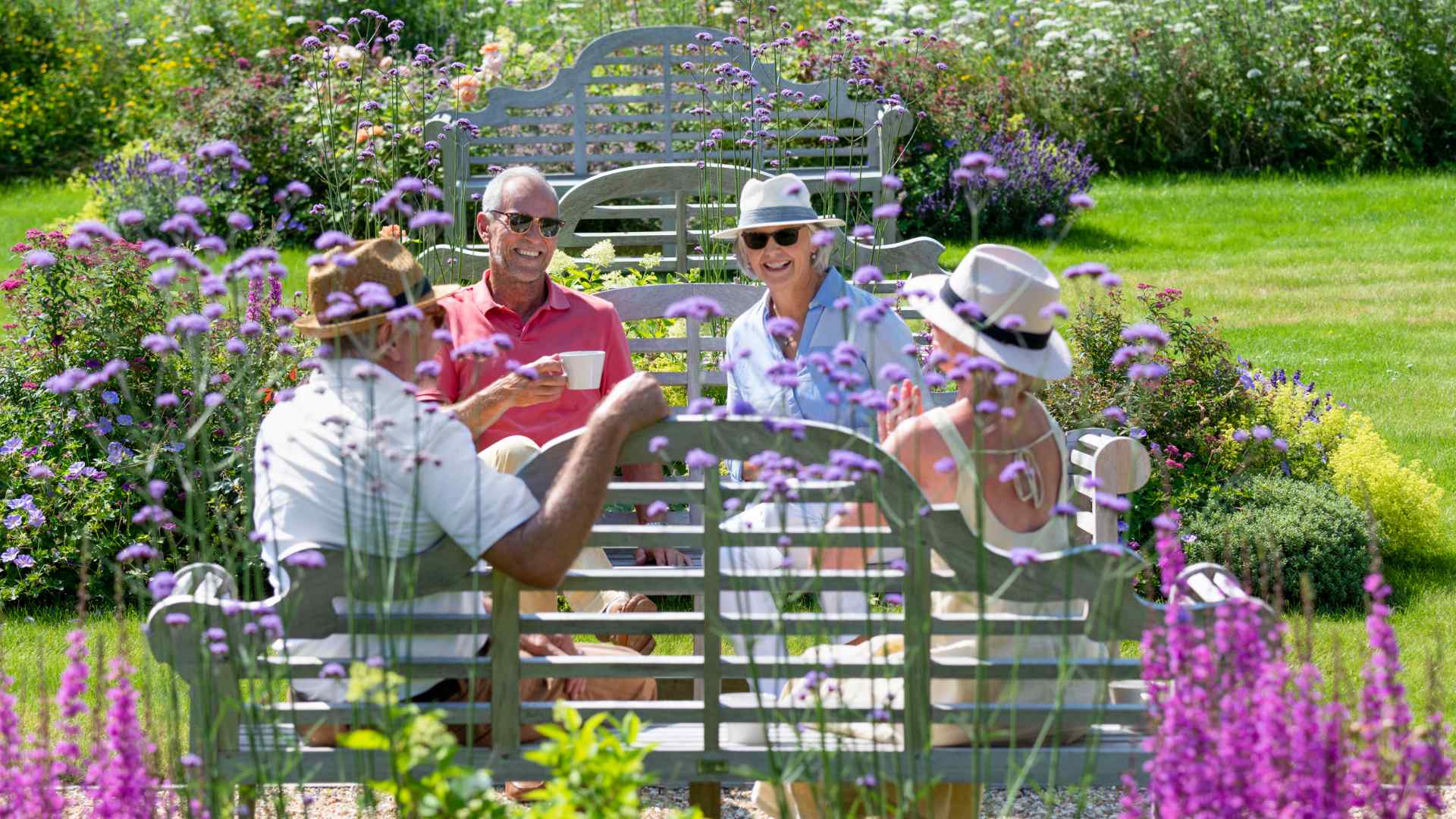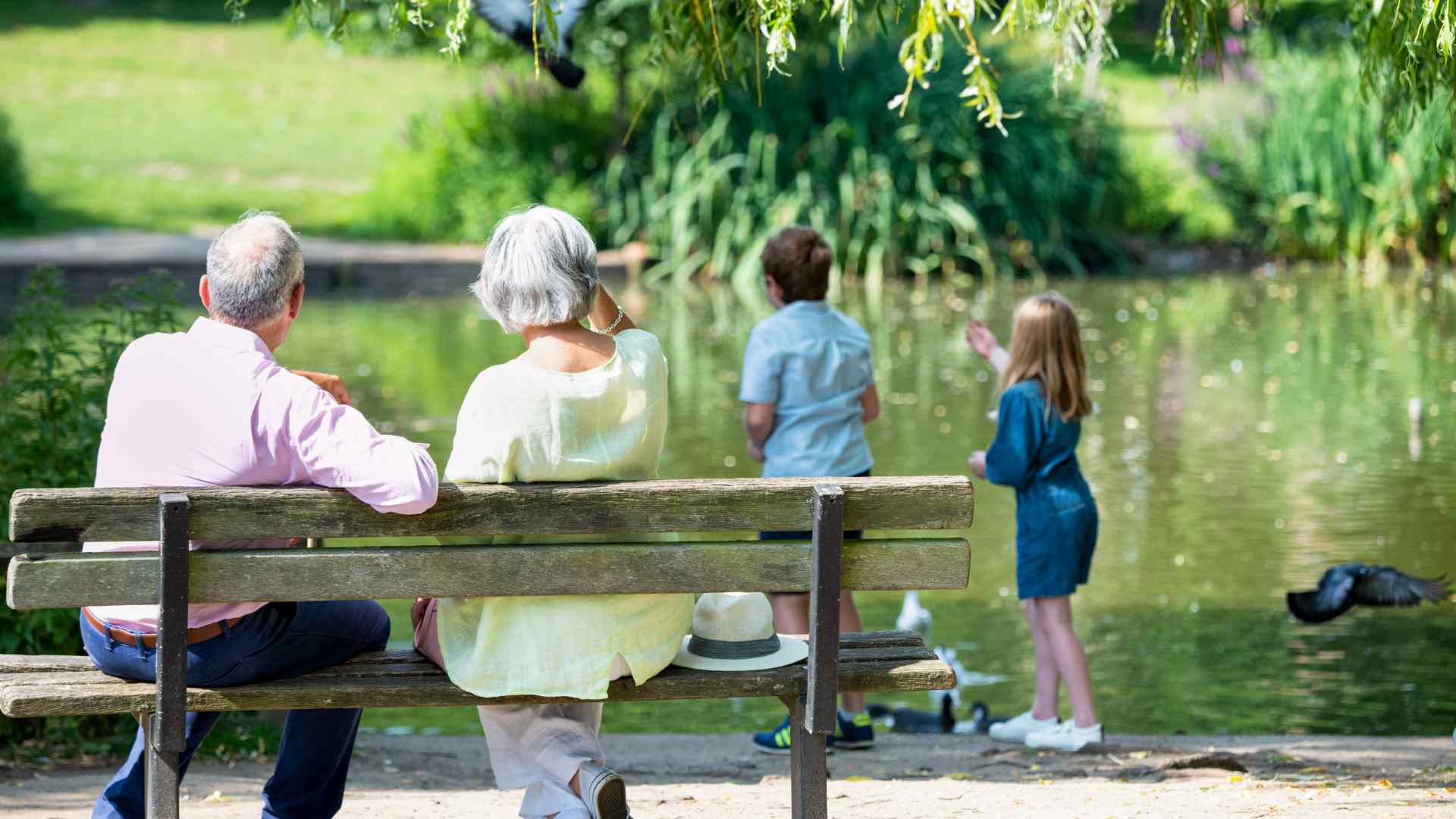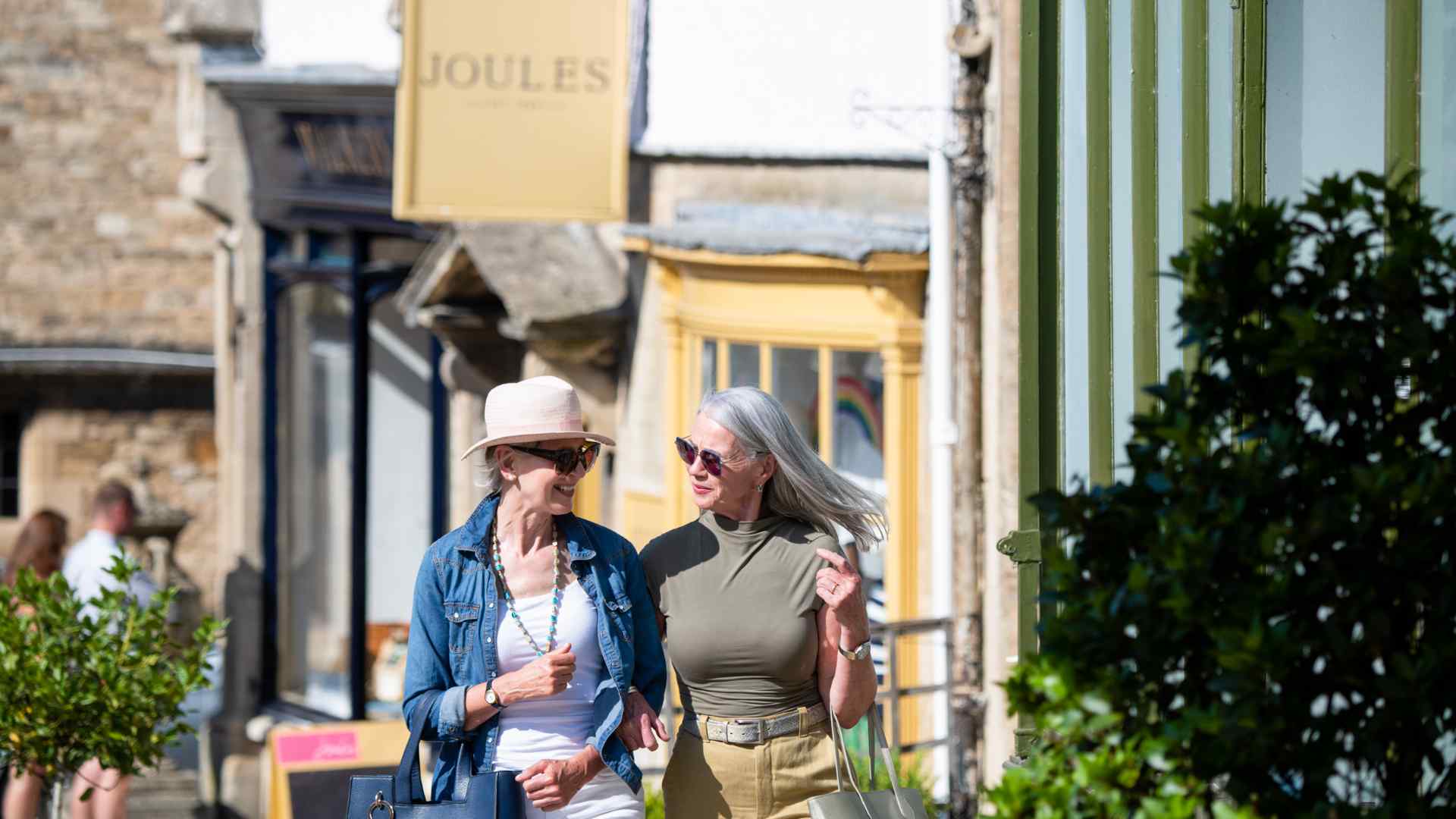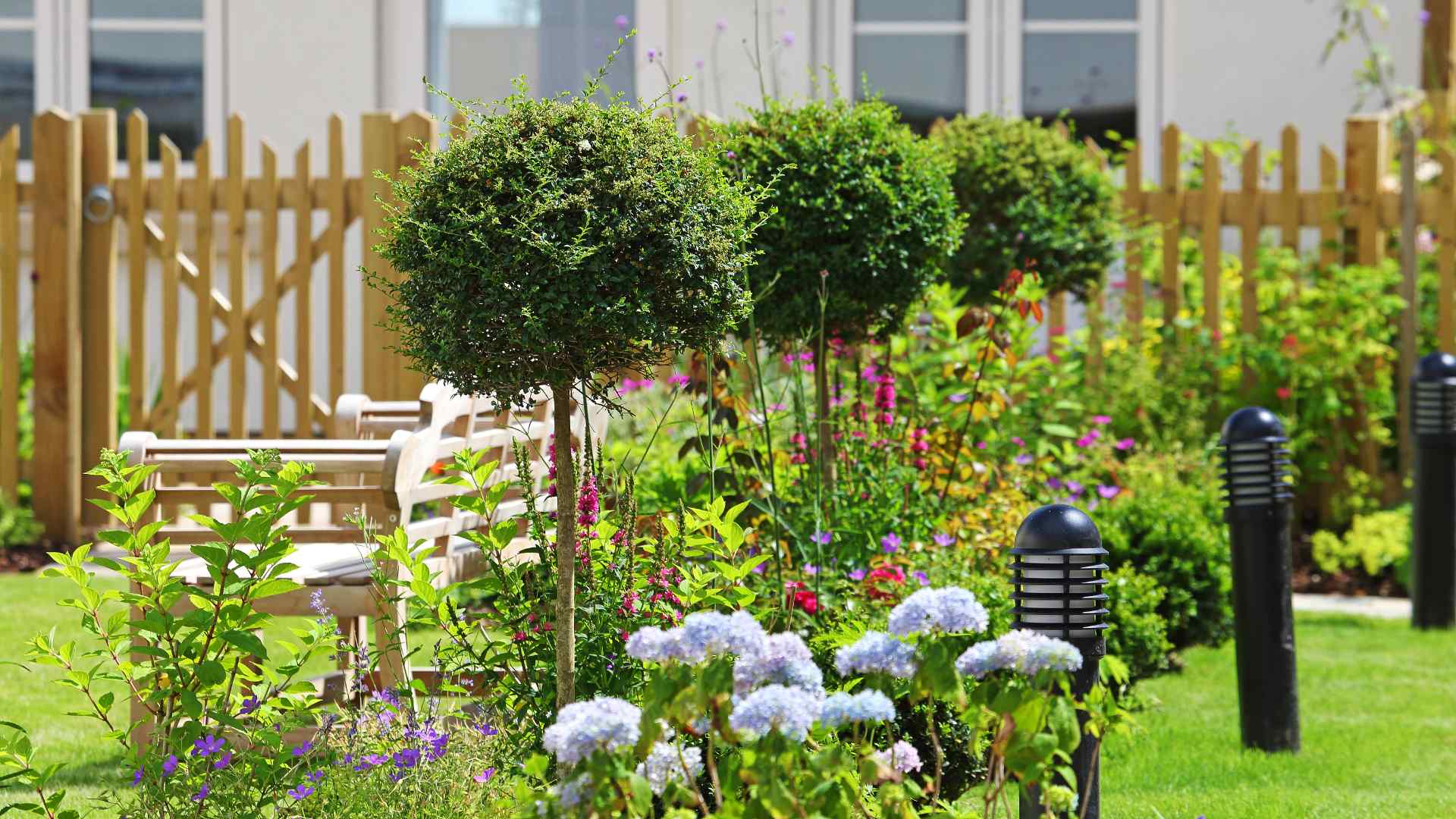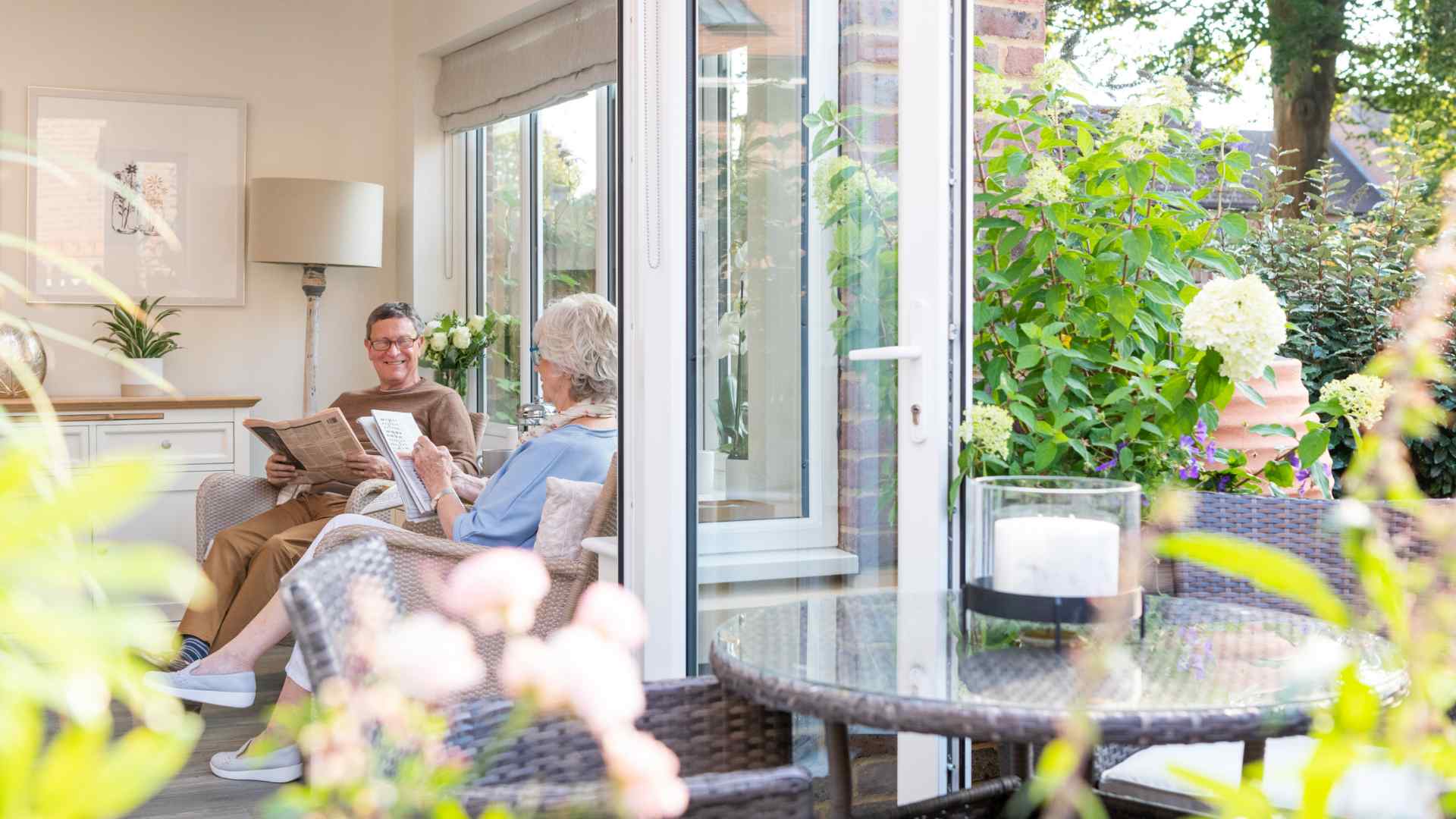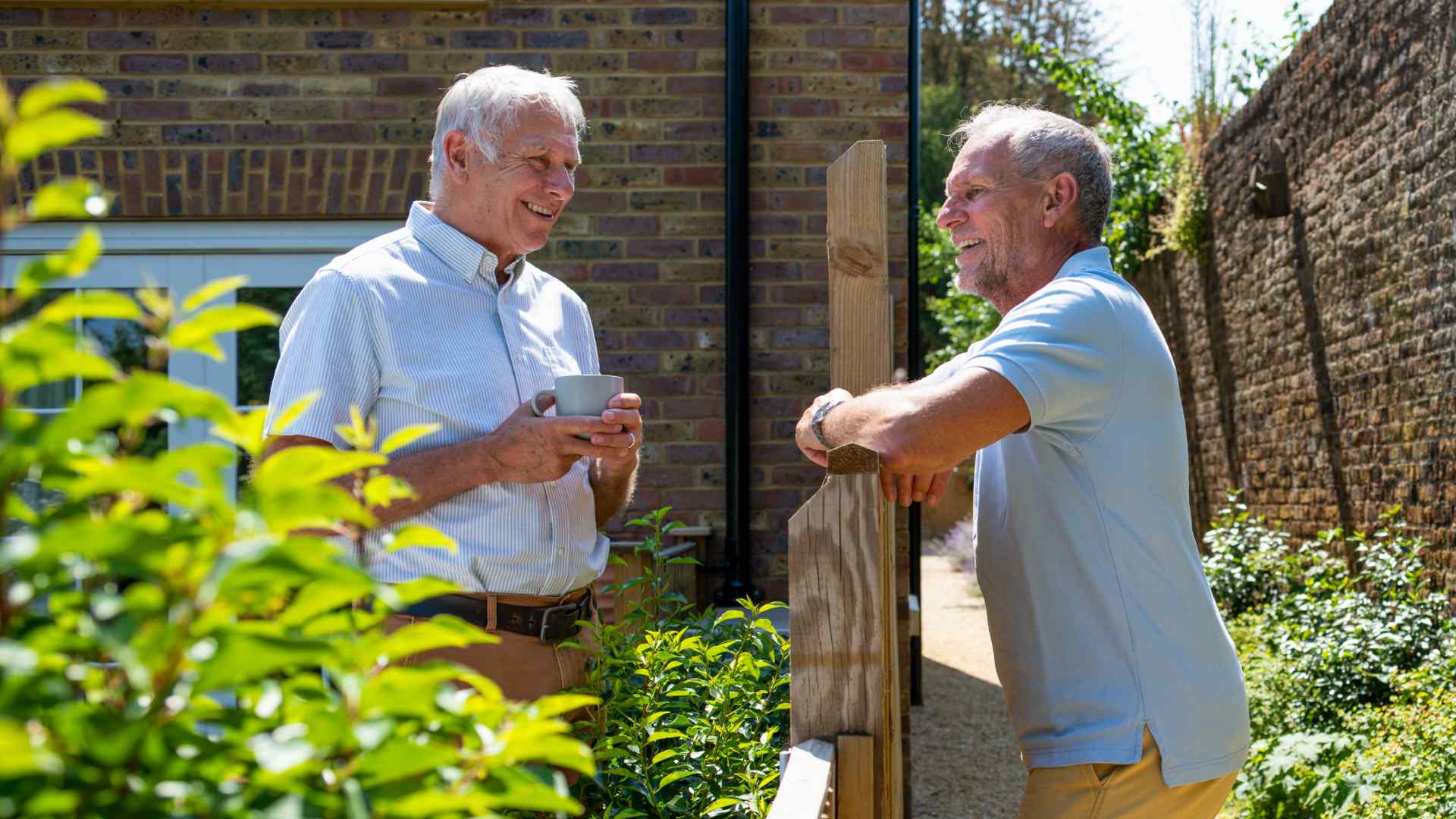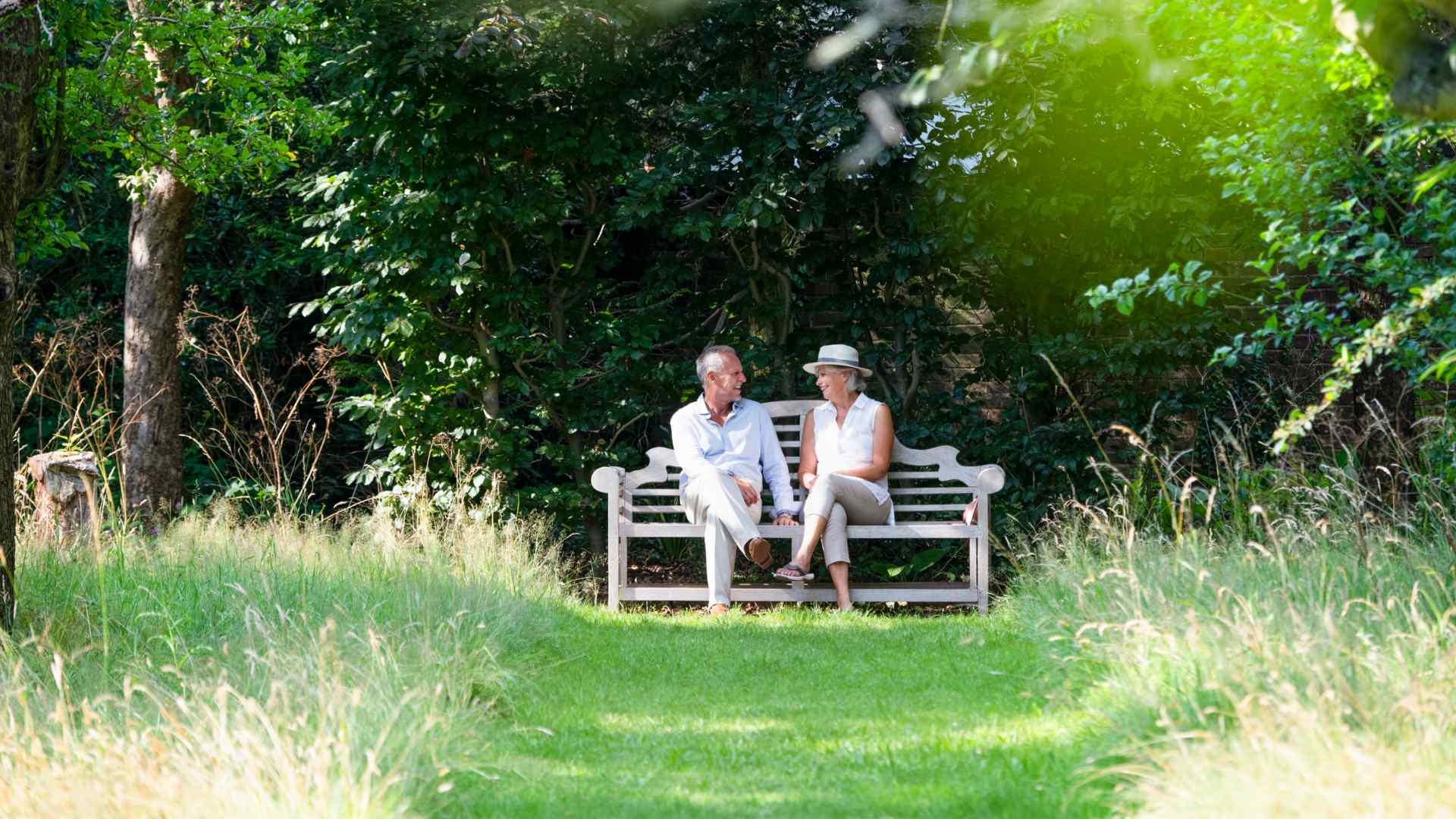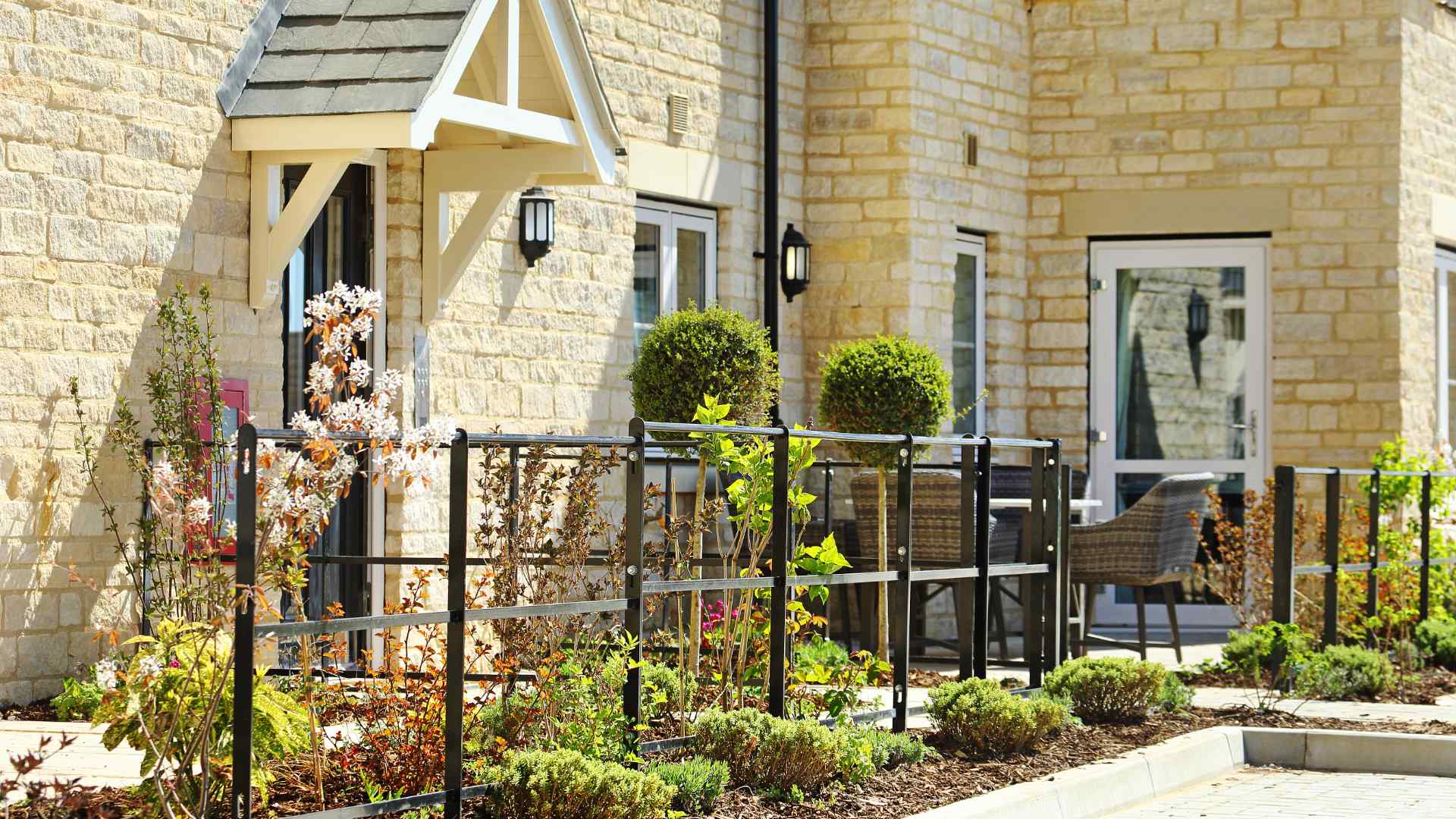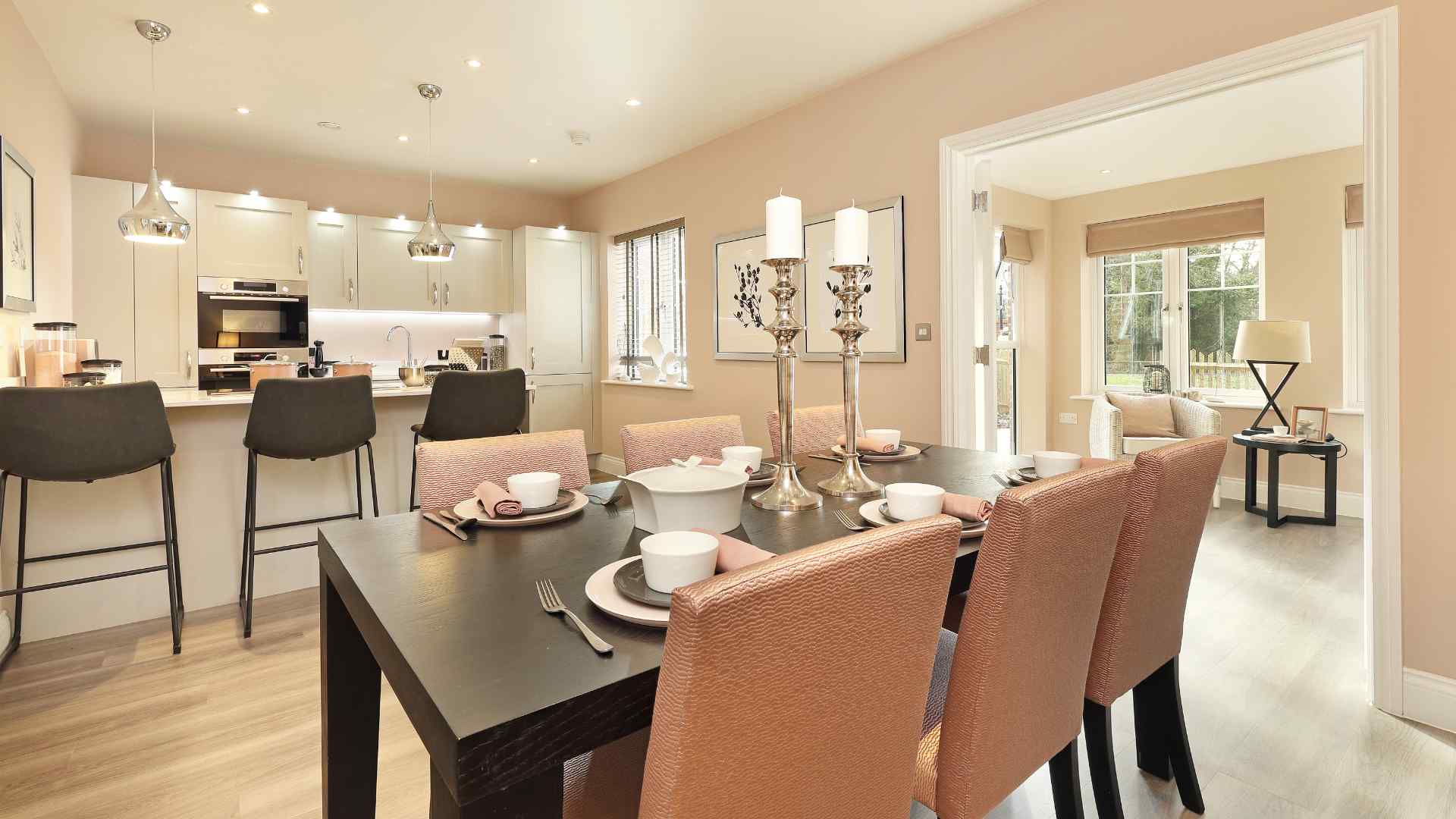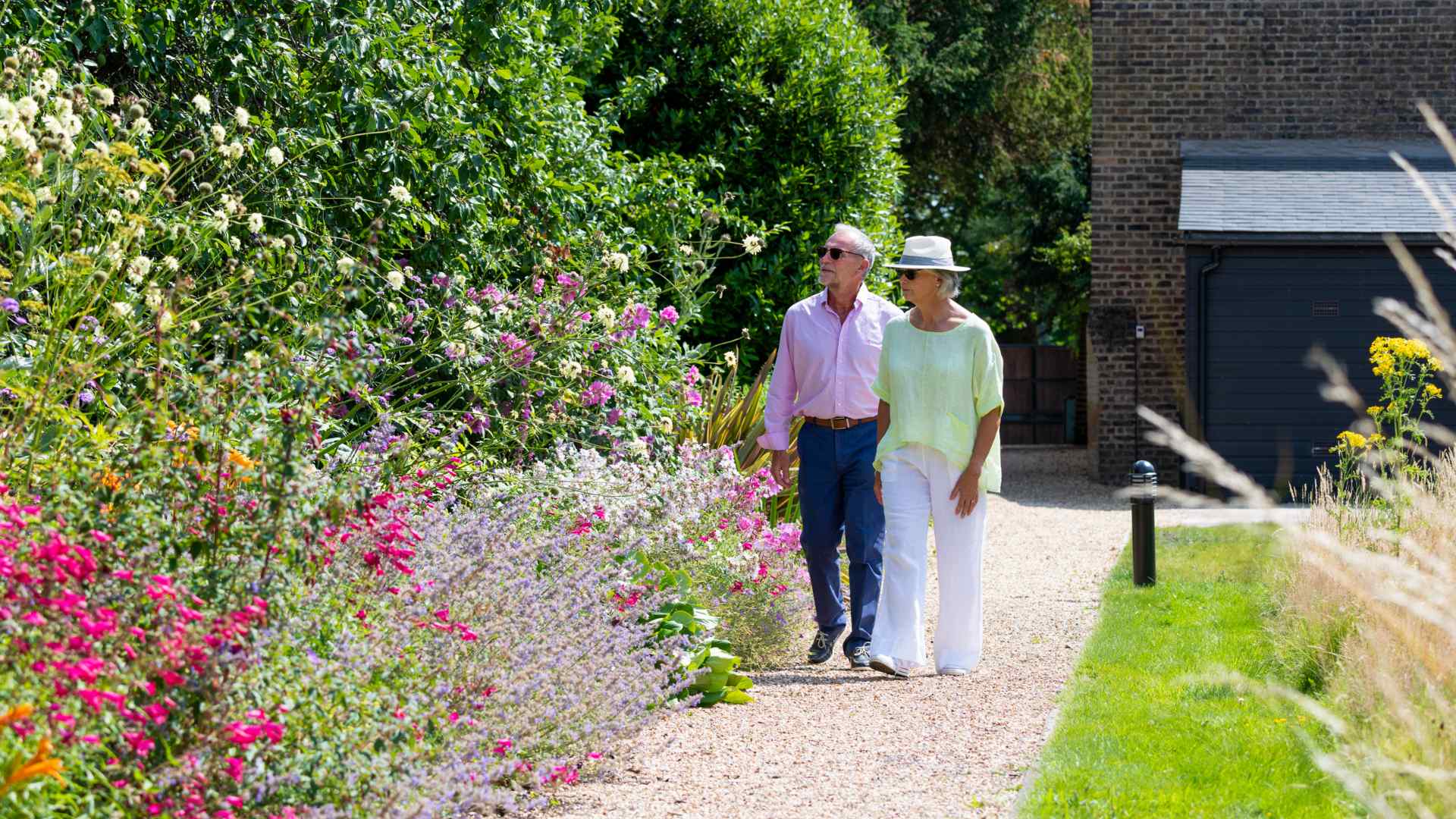
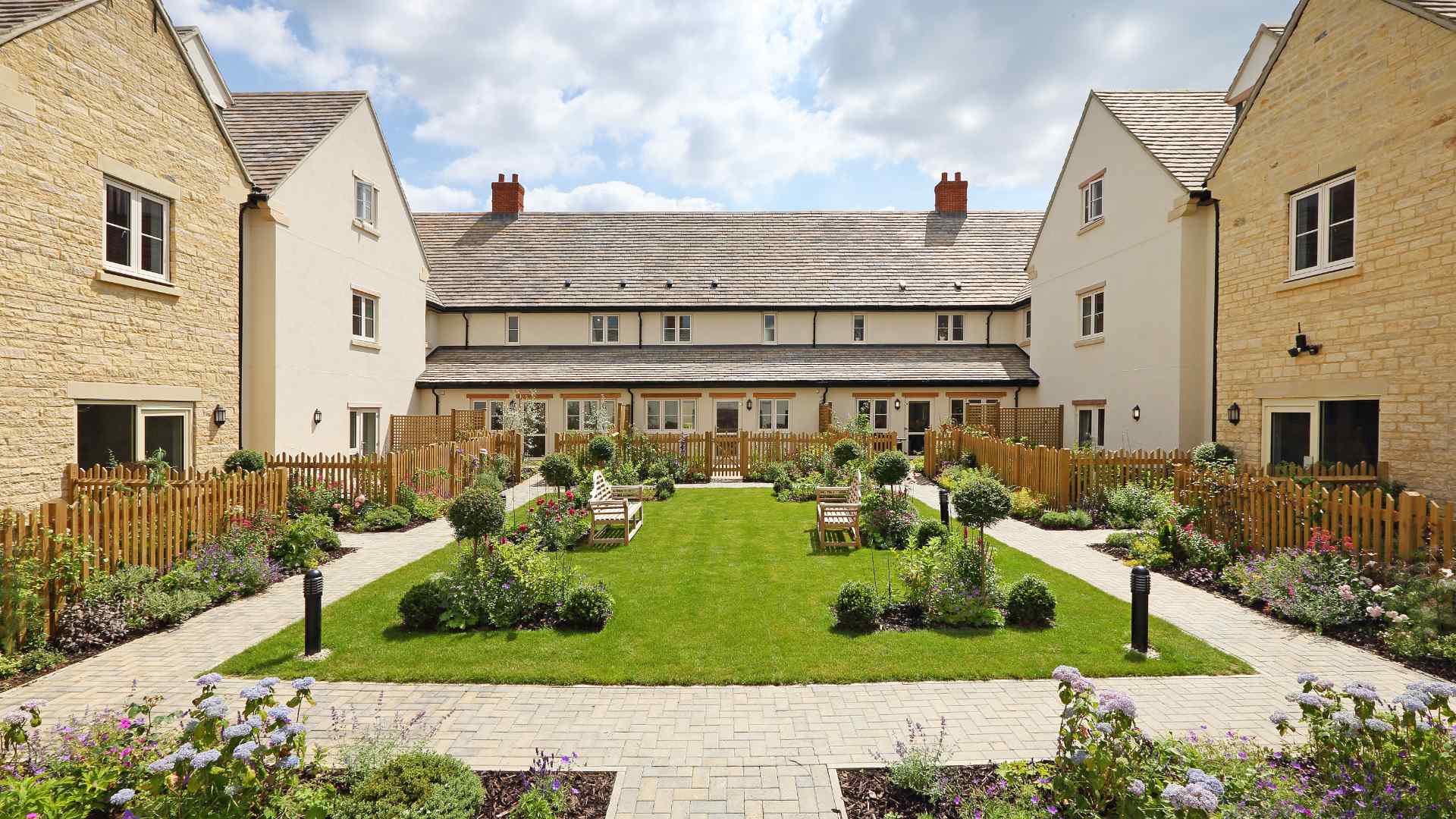
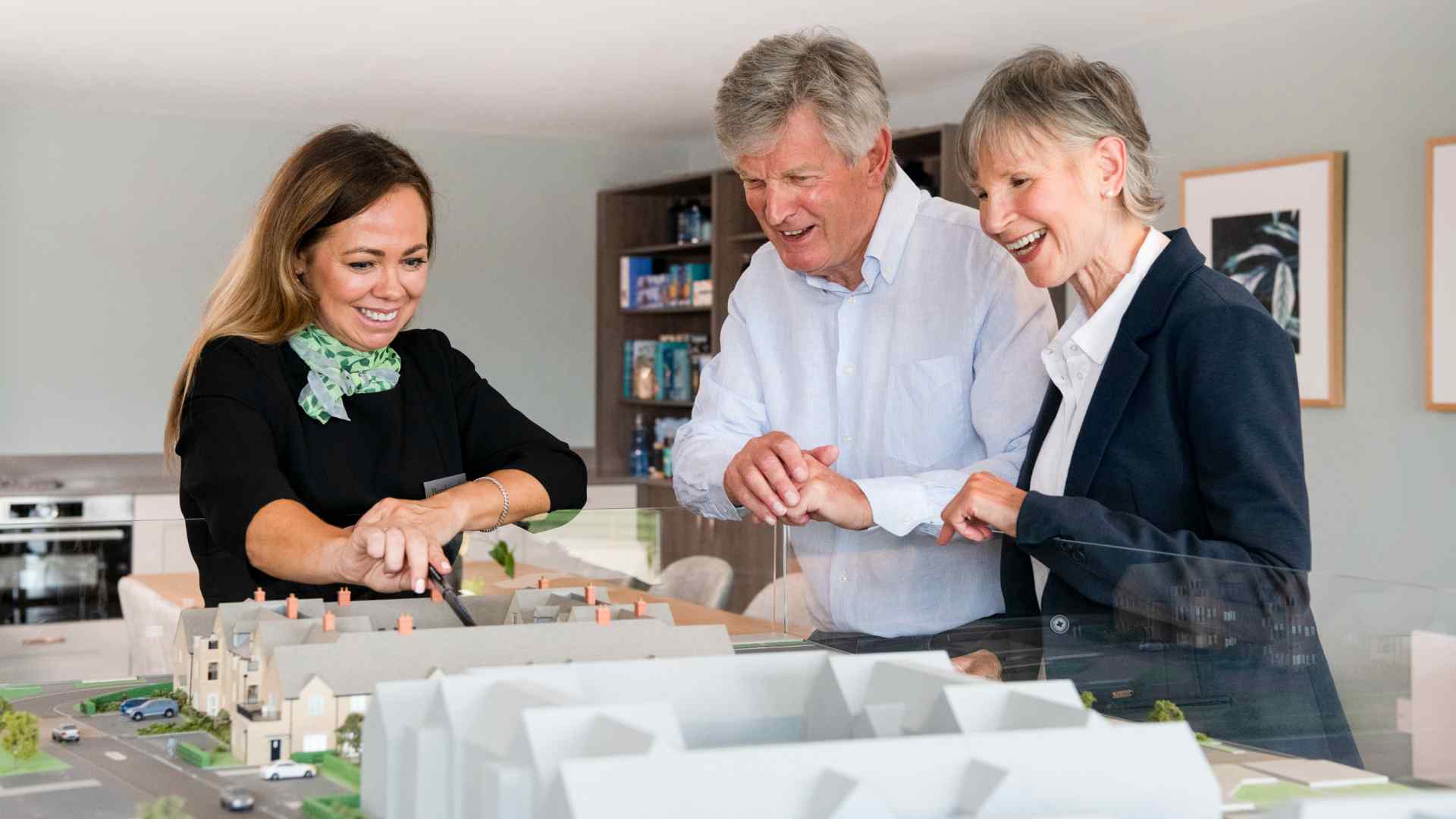
Having the chance to move may be one of the best things about retiring. Once you’re no longer tied to an area because of schools or workplaces, you’re free to move to an entirely new area – perhaps to a place you’ve always enjoyed visiting or to somewhere that simply offers a better way of life.
Just think – if you’re living in a large house set in extensive grounds, moving to a new, energy-efficient home could mean having a whole, new, relaxed lifestyle, free from the burden of maintenance. If you have family or close friends who live some distance away, you could move closer to them and enjoy more frequent visits. If you’re living in a rural or semi-rural area, moving could mean having local shops and services – and a community - on hand and you’ll be able to leave the car at home.
Not necessarily. Downsizing is a term that refers to moving from a larger, underoccupied family home to a smaller home (often called right sizing) rather than just moving home.
There are several reasons why you might choose to downsize:
It is important to understand that downsizing needn’t mean compromising on space, though.
Beechcroft’s purchasers, on visiting a new development, are always pleasantly surprised at how spacious and light the new homes are. From the outset, more than four decades ago, Beechcroft’s aim was to create homes with generously proportioned living space but fewer bedrooms than one would expect in a mainstream property of the same size.
When moving, many of Beechcroft’s customers actually ‘cross-trade’ that is, move to a property of a similar size or similar value than their previous home knowing that their new home will be elegant, energy-efficient, easily maintained, located close to local shops and services and benefit from the services of an estate manager.
Read our extensive guide to downsizing to help you start your journey to finding your perfect home.
Plenty of Beechcroft buyers have travelled some distance from where they used to live.
Some of our customers choose to buy in areas that they don’t know well – or at all. Sometimes, their first visit to the development may also be their first visit to the village, town or city. Moving to a new location can provide a new interest in the town or village in which you live.
“Moving here has been an entirely different experience – we spent 40 years in our previous home and knew everywhere well. We are now exploring a new area,” say Rod and Muriel Stafford who bought a Beechcroft home in Tunbridge Wells.
During our working lives, our choice of home may have been dictated by practical reasons: near schools, workplaces or particular transport links.
When you move in retirement, you’re able to choose the area because of what it can offer – whether that’s spending time in the great outdoors or in the heart of a town where you’re able to shop, meet friends for coffee, dine out and enjoy local activities. With Beechcroft, you’re spoilt for choice when it comes to retirement locations – developments are set in beautiful countryside, charming villages, market towns or cities with a wealth of history – so there’s something for everyone but local facilities are always on hand.
“I liked the idea of living in Wheatley. Having spent years living in London, I wanted to be near a city again and, living here, I have the best of both worlds – a home in a village with everything on hand but close to Oxford.”
, The Sidings, Wheatley
Moving closer to family and friends means you’ll be able to spend more time with your loved ones, perhaps helping with grandchildren and generally being part of the lives your children have created for themselves.
It means an end to hours spent travelling to and from family celebrations and you – and your family – have peace of mind knowing that help is on hand if needed.
“I enjoy being near my grandchildren – it’s a straight walk from their house and they love it here.” Jenny Simmons who moved to Beechcroft’s development in Godalming.
Moving to a Beechcroft development, you retain your independence and privacy but, as part of a community of like-minded people, you’ll have the chance to form new friendships and have a support network on hand.
Some developments feature communal lounges which are venues for coffee mornings, quiz nights, social events and fitness classes and, of course, there will be plenty of things to enjoy in the local community.
“The people here have been so friendly but we respect other people’s privacy. You’re able to stay in the apartment and have a day off from anything or you can walk round and soon find someone to chat to. You never need to be on your own if you don’t want to be. I’ve met so many people. I have joined a bridge club, an arts society, the rotary club and the museum.” Jenny Simmons who moved to a Beechcroft development in Godalming.
If you live in a rural or semi-rural location, it’s likely that you’re reliant on your car – which can be a problem in bad weather or if you choose not to drive.
Moving to a Beechcroft development means having local shops and services on hand – and many developments provide a free shuttle bus service to take homeowners to the shops or on longer trips.
“This is a lovely place to live – a really super area. We lived in a village before but always had to use the car. This area feels semi-rural but we’re just a few minutes’ walk from the bus routes so travelling by public transport is easy – particularly when we want to go into London to see a show. We find we’re using buses more than the car.” Frances Langley and Mike Andrew who moved to a Beechcroft development on Ham Common.
Moving to a brand-new home from an older property can result in substantial savings in terms of your energy bills.
“Since moving in, I have been surprised by just how warm our Beechcroft apartment is. There are no draughts from doors or windows and the whole apartment is so well insulated that we don’t often have the heating on.” Mr Connelly who moved to St Albans.
Making the move to a new, easily maintained home means you’ll have more leisure time – and you’ll no longer have to worry about the upkeep of a large house and gardens.
If you spend time travelling abroad, you won’t return home to find a knee-deep lawn and the flowerbeds full of weeds.
“One of the deciding factors in choosing to live at Maryland Place was the estate management service. I don’t have to worry about anything outside – the external windows are cleaned and my private garden is maintained for me. My grass gets cut regularly so I don’t have to take responsibility for that. I like to travel and am able to lock my door and go away without worrying about my apartment. The Estate Manager keeps an eye on things and picks up the mail.” Janet Denton who moved to St Albans.
Think about what you want out of a new home. How do you want to spend your retirement? What do you want the location to offer?
Asking yourself these questions will help you focus on the type of area in which you’d be happy living. If you want to spend your time with family and friends, then you’ll need to start looking for your new home in areas within easy reach. If enjoying sports or hobbies that you’ve never had time for or that you’ve always wanted to try are high on your retirement priority list, then check out what different areas have to offer. If you love walking, then take a look at areas surrounded by beautiful countryside and with easy access to walking trails. If you’re a golfer, then are there many local clubs and are they accepting new members. If you enjoy theatre, museums, shopping and dining out, you’ll probably be happiest in an historic city location.
It's also important to consider what type of home you want to live in – but do be prepared to be flexible. So often prospective home buyers arrive at a development with every intention of buying a house and they fall in love with an apartment – or vice versa. With Beechcroft, there’s a choice of properties, new and converted, houses and apartments – most with terraces, balconies, private gardens or a combination of these.
Families can be extremely helpful when you’re thinking of moving to a new area. Many Beechcroft home buyers mention that a family or friend first noticed the development that they eventually move to. It’s also wise to take family members or friends along when you view new homes; having a second opinion is always useful.
If you’re moving to be nearer to family, do check the likelihood of them moving away in the near future – perhaps because of a promotion at work. You don’t want to move specifically to be near the family and then find that they are no longer in the area.
If you have younger grandchildren, your family might be hoping you’ll help with child care – and whilst you may be happy to help out, you’ll still need some time to do the things you enjoy, so it’s best to discuss this before you make your move.
Make sure you ask several estate agents to value your current property. If you’ve lived there for some years, you may be pleasantly surprised at the valuation.
Once you’ve worked out how much equity you have in your current home, you’ll have a better idea of how much you can spend on a new one. Don’t forget the cost of agent’s fees, stamp duty on your new home, moving costs, legal fees and any additional costs such as new furniture. Speak to the sales consultant on the developments you’re interested in and they will provide you with an estimated service charge for the new homes. Hopefully, our guide to moving costs will help you with this.
Whether you’re moving two miles, twenty miles or two hundred miles, the following tips are designed to help you with the process of moving.
It’s never too early to start decluttering your home because it’s likely to take longer than you think.
Plan to move only those things that will fit into your new home – it makes moving so much easier – and do draft in some helpers. Family and friends are usually happy to lend a hand, make cups of tea and fetch and carry - and it makes the whole process easier for you. On our website, you’ll find a blog providing advice on decluttering your home.
It’s advisable to seek estimates from several moving companies and compare prices – but whilst affordability is important if you’re moving long-distance, you want to know you’ve got the best company for the job and that may not be the cheapest.
Whilst you may want to pack everything yourself, it’s a long, tiring and often emotional job and allowing your removal company to pack up your entire house can save time and stress. If you’re moving long distance, they are more likely to pack and label everything correctly so it survives the transfer from your old property to your new home.
Keep your valuables with you and also a box of essential supplies -a moving day survival kit – filled with items that you’ll need when you get to your new home – a kettle and tea being priorities.
It’s worth arranging for professional cleaners to clean the property you’re leaving behind –it will save you a great deal of stress.
Talk to our friendly sales team about the ways we can help you achieve a stress-free move.
There are so many things to think about when you’re moving home so it’s worth preparing a check list to make sure you don’t overlook anything. One of the most important is to put your documents including passports, insurance and house deeds in one box or file. Take a look at the example of a checklist we have prepared to help you on your way.
Once you have moved into a new home in a different part of the country, things can seem a little daunting.
The most important thing is to take your time – you don't need to feel pressured into getting out into the local area immediately; do it whenever you feel comfortable. Here are a few tips to help you integrate yourself into your new community:
If you are looking for a stylish retirement house or a luxurious apartment for your retirement years, you'll find our retirement communities in some of the most attractive, sought-after villages and market towns in Southern England.
Explore View our current developments5 February 2026
Whatever your taste or your budget, you can find somewhere to dine out in Windsor. From Michelin starred restaurants to smart restaurants…
Read more4 February 2026
Make this easy sweet and sour sauce recipe UK style with crispy chicken, peppers and pineapple. A quick homemade fakeaway that…
Read more3 February 2026
Discover the best Valentine’s Day meal deals 2026 from UK supermarkets. Compare prices, menus, and value from M&S, Tesco, Aldi,…
Read more

